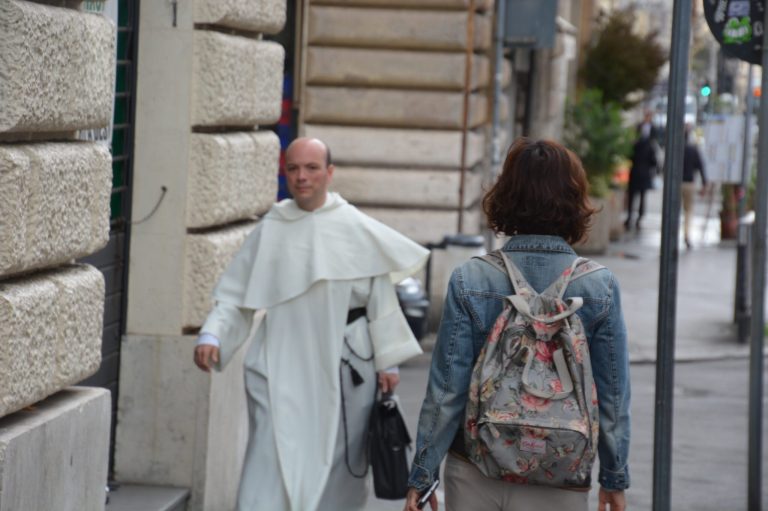
“Plus ca change, plus c’est la meme chose” The more things change, the more they remain.
Secularism grows and religious belief seems to shrink. Upon closer inspection, however, one can see how psychotherapy, a secular practice, parallels religious rituals in surprising ways. As an example, in Catholicism, everyone must regularly go to confession in order to cleanse the soul of previous sins of omission or commission. Confession allows the parishioner to be pure enough to receive the host on Sunday.
Confession is usually heard on Saturday afternoon when you are taken to church and lined up with all of the other sinners and await your turn to enter the confessional. As you wait in line you need to figure out what you’re willing to confess to the priest. It can’t be too grotesque but should be troubling enough to confess.
The priest is seated within the confessional and hidden behind a screen. The screen is there so that your shame might be lessened somewhat and thus increase the chance that you’re willing to confess. As a teenager I came up with the standard venial sins such as lying, cursing or having “impure ‘thoughts.” These sins weren’t bad enough to lose sleep over since they were not mortal sins, which were a one way ticket to hell. Mortal sins were things like murder.
When it was your turn, you entered the confessional, knelt down, made the sign of the cross and said:
“Bless me Father for I have sinned. It has been one month since my last confession…these are my sins.” I assumed the priest was listening to all of this without dozing off and after I recited my venial sins he would ordinarily assign some penance which was often “Please say three Hail Mary’s , three Our Father’s and the act of contrition.” I would then leave the confessional, kneel down in one of the empty church pews and say my penance. Then I would go home and repeat the same thing next month.
Similar to the priest in the confessional, the psychotherapist sits silently and out of sight as the patient tries to recall and to share repressed guilt or shame from their past in the hope that by sharing it, their burden will be relieved. And just like the priest, the therapist remains quiet and non-judgmental and is bound to silence and confidentiality. The only significant difference is that the priest assigns penance whereas the therapist assigns a fee. Maybe the patient ought to start by saying “Bless me doctor, for I have forgotten. It has been one week since my last recall. These are my memories.”
We live in secular times. Nietzsche announced that “God is Dead” back in the 19th century and Freud followed around 1900 by suggesting that religion was little more than a childish neurosis. But despite all these cultural changes people still feel guilty about a host of “sins” and therefore they still need a place to talk about these worries in order to become free of them.
It is not unreasonable to suggest that the therapist is now the culture’s new high priest, willing to listen nonjudgmentally to whatever the patient needs to share. When patients develop trust and begin to recall long-forgotten, traumatic moments, they become free and more happy. Just like talking in a confessional, the sharing of pain relieves the soul of its burden.
Cultural institutions may come and go. Some come into vogue while others seem to disappear, but what remains the same is that people will always suffer and so there will always be a need to find someone to listen and to offer solace, forgiveness and comfort.
My guess is that in the not too distant future therapists will be replaced by compassionate computers who listen well and also provide comfort and forgiveness. Mystics and oracles were in charge back in ancient Greece. This was followed by priests and clerics who rose to power and replaced the oracles. Then came the therapists, psychiatrists and social workers who took charge.
But soon our time will be over and we will be made obsolete by super computers who will have better memories, better voices and even better insight into the human psyche. Chat GTP is impressive enough, but in 40 or 50 years I guarantee every adult will have a super therapist within their computer who will be on call 24 hours per day, never get tired and will be able to offer the best advice and encouragement available.
This brave new world is coming so you had better get ready.






